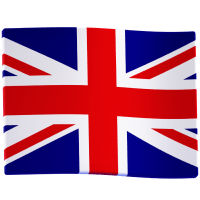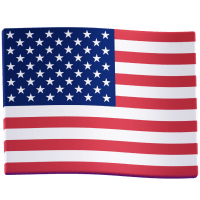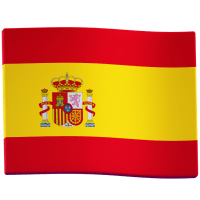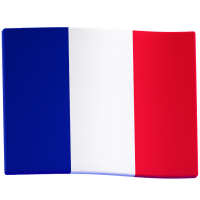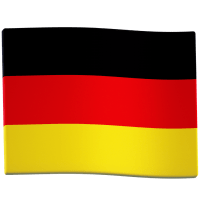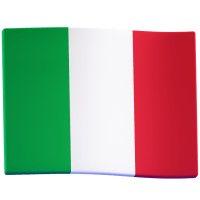Korean words you need to know to build your Korean vocabulary
Common Korean Words
Although the process may not seem complex, dictionaries have several criteria when deciding which words to add, reject, monitor or remove. To put it simply, if a new Korean word is used by a lot of people for a long period of time, it starts to be considered for inclusion in the dictionary. Then, the dictionary editors or lexicographers will assess this word and finally add it to the dictionary if they see fit.
The encouraging aspect of learning Korean is the efficiency of understanding the language with a relatively small vocabulary. Knowing just around 100 essential words can significantly enhance your comprehension of Korean texts, allowing you to understand a substantial portion of the words in an article or book. By expanding your vocabulary to the most common 1000 words, your understanding of Korean texts could increase to about 75%.

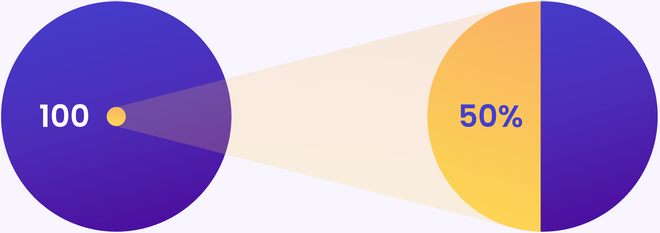
When you know the most common 100 Korean words
You can understand 50% of the texts written in Korean
Top 10 cool and common Korean words pronounced by fluent Korean speakers
1. 안녕하세요 = Hello
Let's naturally start with "안녕하세요" which means "Hello" in Korean. This is one of the most known words in Korean and a great way to start a conversation with someone from the South Korea. Click play below to listen to the actual pronunciation:
안녕하세요
2. 사랑 = Love
Love is a universal feeling and we definitely had to talk about it here. Korean people have a lovely way of saying they love someone or something through the word "love". Hear it in action here:
사랑
3. 행복감 = Happiness
When there's love, there's definitely happiness. We are all chasing "happiness" as Korean speaking people would say. Listen closely and you might just get some “행복” in your life today:
행복감
4. 고양이 = Cat
How did cats take over the internet? At this point, they seem to be ruling over everything and everyone. Listen to the correct pronunciation of the word ‘cat’. It only takes a meowment.
고양이
5. 개 = Dog
But let's not forget our lovely and loyal companions, dogs. A dog in Korean is "개", a really useful word for dog lovers worldwide. Here is how you would pronounce it:
개
6. 미소 짓다 = Smile
Did you know that smiling relieves stress, elevates your mood and helps you live longer? Here’s how a Korean speaker pronounces the word ‘smile’:
미소 짓다
8. 예 = Yes
Yes, we have arrived at number 8 where “yes” is the subject to be discussed. Korean speakers say “yes” by simply saying "예". Enhance your understanding by listening to how a person from South Korea would pronounce it:
예
9. 감사합니다 = Thank you
A single ‘thank you’ is all you need to receive dozens of smiles everywhere you go. Here’s a native speaker thanking you in Korean:
감사합니다
10. 안녕히 가세요 = Goodbye
At the end of a meeting, it’s always nice to say ‘goodbye’ so as to maintain the good first impression you managed to make with your flawless Korean. Let’s see how you can do that:
안녕히 가세요
Improve your Korean vocabulary online

Every lesson in Mondly is centered around a specific theme or real-life situation, such as family, colors, animals, or shopping. This immersive approach quickly puts you in various scenarios like ordering food in a restaurant, reserving a hotel room, or engaging in a casual conversation with a native Korean speaker you've just met. Structuring the lessons around these themes simplifies the process of learning Korean. It helps in forming strong associations in your mind, making it easier to remember and use the language effectively in context. This thematic approach to language learning is not only practical but also enhances your ability to recall and apply new words in everyday situations.

The most beautiful Korean words

Now, let’s explore the ultimate goal of learning Korean: having real conversations. That’s exactly why we’ve made speaking exercises an essential part of our lessons so you can practice the cool Korean words you just learned. You have to try our Voice Chatbot, a software so advanced you can actually have an intelligent conversation with. Just engage in a conversation and you get asked questions, you respond and the Chatbot understands what you're saying and continues the chat. It’s a remarkable technology that made millions of people fall in love with Mondly.

Did you know?

The good news is that you don’t have to learn such words to be able to be fluent in Korean. With Mondly you will only learn the most important Korean words, the ones you really need to know to speak the language.
The Korean language, rich and nuanced, has a substantial number of words, but perhaps not as many as one million. The exact count can vary depending on how one defines a distinct word, especially considering compound words and borrowed words. Major Korean dictionaries contain tens of thousands of entries, reflecting the language's depth and variety.
For learners, the task of mastering Korean may seem daunting at first glance. However, becoming fluent doesn't require knowing every single word. In fact, with a solid grasp of the most commonly used words and phrases, which is significantly less than the total number of words in the language, you can achieve a good level of fluency. It is estimated that knowing around 3,000 to 5,000 of the most commonly used Korean words can enable you to navigate most conversations and texts effectively. This more manageable number makes the goal of fluency in Korean an achievable one, encouraging learners to focus on the most essential aspects of the language.

The benefits of learning the most common Korean words first

Make Korean learning fun and easier
Starting with the Korean basics means you will begin by learning the easiest words first and gradually increase difficulty. This way you will feel great while learning and see how your language knowledge broadens.

Have basic Korean conversations in no time
You'll be able to speak to someone from North Korea or South Korea about regular topics like weather, politics or family. This will make you confident in your Korean skills and eager to learn more.

Become fluent in Korean faster
By learning the most common Korean words first you are learning the smart way. Why learn the most unusual words in Korean when you might never use them in real life?

Improve your Korean vocabulary
Each new Korean word you learn piles up until your vocabulary builds stronger and stronger. Each lesson gets you one step closer to fluency.






